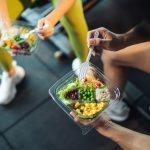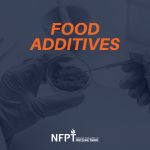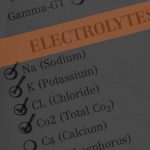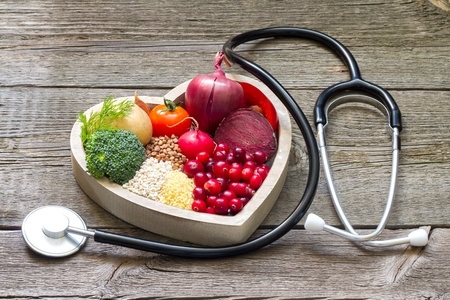
What do Registered Dietician Nutritionists (RDN) choose for their own daily eats and cheats? Find out and get suggestions for pre/post workout meals, thoughts on cleanses and simple tips to share with your clients. I had the privilege to talk with a wide range of these authorities in the nutrition field while they walked me through their day to day routine, what they do to stay healthy, as well as sharing with us some of their “guilty food” pleasures!
What makes those bearing this three-letter acronym so knowledgeable? According to the Academy of Nutrition and Dietetics, RDN’s “use their nutrition expertise to translate the science of nutrition into practical solutions for healthy living.” If you’ve never met an RDN, these responses will make you realize you have more in common with them than you think and that they’d be a great person to build a referral network with!
A day in the life of a dietician
Q: Walk us through your routine in a day (i.e. how you start your morning off, snacks and meals throughout the day, any physical activity).
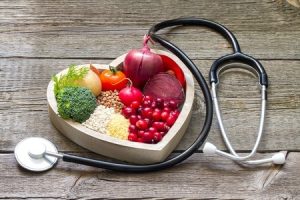
“My mornings usually start with an espresso and a glass of water. While most nutrition professionals will tell you to eat first thing in the morning, I prefer to wait an hour until I’m feeling hungry. Why eat when you’re not hungry? My breakfast usually consists of oatmeal with fruit or toast with jam or avocado during the week, and eggs and toast on the weekends.
A mid-morning snack is usually a banana with peanut butter or other fruit and nuts and lunch consists of leftovers from last night’s dinner: a lentil bowl, pasta, or fish/meat with vegetables and roasted potatoes. I have another snack in the afternoon, usually crackers or yogurt, and then dinner around 8pm–making sure to save enough for lunch the next day.” -Kristina Todini, RDN forkintheroad.co
“During the week I usually snooze 3 alarms and get up the latest I possibly can to still get to work on time. Then drink coffee and eat granola and yogurt everyday for breakfast at work while I’m screening the hospital. I try not to snack between breakfast and lunch then typically eat salad for lunch and 100 calorie packs or baked chips. Most days I go to the gym and I’ll usually eat a granola bar in the afternoon then have some kind of fruit when I get home. For dinner, I generally make some kind of protein- usually chicken and vegetables. Then I have a snack after dinner like crackers or popcorn and almost every day eat something with chocolate in it!” -Emily Simaitis (ES), RDN CNSC at Penn Presbyterian Medical Center
“Breakfast- 2 eggs, 1 English muffin and coffee, Snack- banana and peanut butter, Lunch- Hot bar at work (Meat, potatoes/ rice, roasted vegetable), Snack- Protein bar, Crossfit Workout, Dinner- Whole wheat pasta, meat (chicken sausage or beef) roasted kale” -Nora Tramontina (NT), RDN at Penn Presbyterian Medical Center
“On a normal day, I wake up at 4:30am and am out the door by 5. I get to the gym at 6 (I take the train, drink my BCAAs on the way) and workout for an hour before running to work at my day job at 730 am (Chief Clinical Dietitian at Hamilton Park Nursing & Rehabilitation Center). I eat breakfast and grab a cup of coffee as soon as I get to work. Breakfast right now is usually 1/3 C quick cooking oats + 1/3 banana, followed by 3 hard boiled egg whites with Mrs. Dash or hot sauce. Lunch usually happens around 11:30, and is usually 3oz. rice or sweet potato, 4 oz. chicken breast and 12-1c. veggies (that’s usually dinner, too).
After 9:30 grand rounds I sit down and do paperwork (including finishing up on new admits, charting weights or completing MDS). 11:30 is a quick desk lunch of 3oz. sweet potatoes, 4 oz lean protein like chicken breast and a cup of cooked broccoli or raw greens. 1pm is a protein shake- currently loving Allmax Hexapro’s bubblegum ice cream flavor because I am permanently 5 years old in my head. [At] about 3 I have a snack like a protein bar and get on the train to the gym I work at in Queens (I lead the nutrition program there).
5:30 is dinner and a quick focus workout (usually glutes and hams lately) and then I either go to train clients or sit down to write a little content for the gym (blog/ marketing/ etc). I’m done at 8, and take the train home. Once home I prep my breakfast, lunch, snacks, supplements (not hard, as I usually pre-prep and have to just stuff them all in the fridge from the freezer) shower, possibly with a glass of wine or a beer and then go to bed around 10:30.” -Lauren Barnack, RDN ironlionperformanceblog
Q: What’s the one food you couldn’t live without (note: it does not necessarily need to be healthy)?
“This is hard, because I love all foods. Can I say wine? But seriously, I think I could not live without bread and pasta. Before studying nutrition I was afraid of carbohydrates but now I know they are something I could not severely limit or go without. I don’t recommend eating pasta every night, but it makes an appearance on my plate at least once a week.” -KT
“Coffee.” -NT
“Definitely donuts, especially since discovering Beiler’s bakery.” -ES
“Do I have to pick one? I am tempted to say “pizza” but I think the real answer is meat. I love my protein and I don’t think I would ever want to live without it. If it has to be a specific dish, it’d still be pizza… pepperoni pizza.” -LB
“Dark Chocolate.” -Sofia Gourlides (SG), MBA RDN, at New York State Department of Health
Q: What kind of snack and/or meal would you recommend pre and post workout?
“Pre-workout I tend to keep it light, as I don’t feel well working out on even a half-full stomach, so usually a banana or a piece of bread with nut butter will do. For any snack I try to combine carbohydrates, protein and a healthy fat, but make a point to focus on protein and carbs after a workout.” -KT
“Pre- Protein bar, Post- Meat and carb” -NT
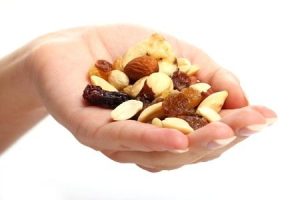
“I usually have some carbs before a workout like a granola bar. Post-workout I would recommend anything with protein – depending on the time of day – maybe a greek yogurt [and/or] apple and peanut butter or if it’s close to dinner just making sure you have a high protein meal.” -ES
“This depends on the workout. If you’re a runner, get to know your body and pick a pre-run snack that you know won’t leave you barfing or hitting a rest stop every mile. Post workout, electrolytes, water, carbs, protein. If you’re a lifter, carbs with little protein before and a healthy balance of all your macros when you’re done, as well as a lot of water.” -LB
“If it is a cardio workout, it is a 4:1 ratio of carbs to protein because more carbs are needed to replenish energy stores. If it is a strength training workout, it is recommended to have a 2:1 ratio of carbs to protein because more protein is needed to rebuild muscle” -SG
Q: If you could give one piece of advice to someone looking to lead a healthier lifestyle what would it be?
“My go to advice for anyone wanting simple tips to get started is this: eat more veggies, drink more water, move. These three things may seem very simple, but they are the foundation of living a healthier lifestyle.” -KT
“Eat less processed foods –> more foods with less than 3 ingredients.” -NT
“Picking one or two things to focus on and trying to make those a part of your regular routine instead of trying to make several changes at once. It’s easy to get overwhelmed or feel really restricted when trying to follow a new diet. Focusing on one or two things at a time can be more manageable and I believe are more likely to lead to lifestyle changes with greater benefits over time.” -ES
“If you’re just trying to get into a healthy mode of eating, I would say that the most valuable thing you can do is to be kind to yourself. Proper nutrition is a lifelong journey and you are going to make mistakes along the way. It’s OK. allow the mistake and don’t give up the whole day’s kcal and binge because of one mistake.” -LB
“Incorporate a fruit and vegetable in every meal.” -SG
Q: What is the biggest misconception about being a Registered Dietitian?
“That we’re the food police. I work in the business sector so it is not my job to tell someone what or how to eat–I leave that to the RDs who are passionate and better at it than I am. However, it is my job to promote and talk about healthy, delicious foods every day. I want to connect people to the joy of eating, the culture behind food and the community that food brings. Food connects us all and that’s what I love about it.” -KT
“I don’t make meal plans! And I’m not a food Nazi.” -NT
“That we always eat healthy – I do most of the time but there are some weeks that I’ll make cookies and eat a dozen myself!” -ES
Q: With summer approaching people are eager to lose weight … quick! What are your thoughts on some of the quick weight loss tools (i.e. cleanses, extreme 10 day diets, “tummy teas”, wraps, weight loss shakes) being marketed?
“In general people want a quick fix, but quick fixes will not bring long-term, sustainable lifestyle changes. It can take years to change ingrained, unhealthy habits and I believe setting small, attainable and realistic goals is the only way to achieve lasting success. It’s really not about the end goal, it’s about the journey to get there–and guess what? That journey doesn’t stop just because of the number on the scale. It must be nurtured and maintained to last, so why not set yourself up for success from the start?” -KT
“They are designed for short term success. They may make you lose weight initially but they are hard to sustain and will likely lead to regaining the weight and a feeling of failure. You have to look at who has a financial benefit when it comes to those “weight loss tools”. Eating more fruits, vegetables and lean protein will always be the best weight loss method and it doesn’t extra! It may not be quick and easy but it is the best method and the healthiest way to live.” -NT
“I think if a company has good marketing they can make people eat literally anything. But the fact that new fad diets come out every year is proof that the old ones never worked in the first place. The quick approaches to weight loss may work over the first couple of week because you’re drastically cutting back on portions and calories but rarely teach anyone anything about nutrition so eventually you’re doomed to fail and most of time lead to gaining all the weight back.” -ES
The take home message
There’s no one size fits all approach when it comes to nutrition! Even amongst a group of women working together in the wellness field there is a clear distinction in their personal health values, specifically designed to meet their particular lifestyle.
Just like RDN’s, your clients are going to have different health goals requiring their very own healthy roadmap, specifically curated to promote their success in achieving optimal wellness. As health professionals in this field, how lucky are we to be the compass guiding individuals to their greatest potential? Pretty amazing stuff. Plus, what a relief to know even RDN’s like to enjoy the occasional beer, wine, pasta, pizza, donuts, AND chocolate–I stand by this 100%! Cheers to “creating healthy habits, not restrictions!”
[info type=”facebook”]What do you think about these RDN’s eating routines? If you’re certified with NFPT join the Facebook Community Group to talk with other NFPT trainers. If you’re not, come chat with NFPT here![/info]
 Regina Pellegrino is a certified Health Coach throughThe Institute for Integrative Nutrition, as well as a certified Fitness Specialist through San Diego Mesa College. She is currently working towards her accreditation as a Registered Dietitian Nutritionist. Her goal is to spread her thirst for knowledge and passion for living a healthy lifestyle by helping others achieve their optimal health. Learn more about Regina at http://
Regina Pellegrino is a certified Health Coach throughThe Institute for Integrative Nutrition, as well as a certified Fitness Specialist through San Diego Mesa College. She is currently working towards her accreditation as a Registered Dietitian Nutritionist. Her goal is to spread her thirst for knowledge and passion for living a healthy lifestyle by helping others achieve their optimal health. Learn more about Regina at http://

